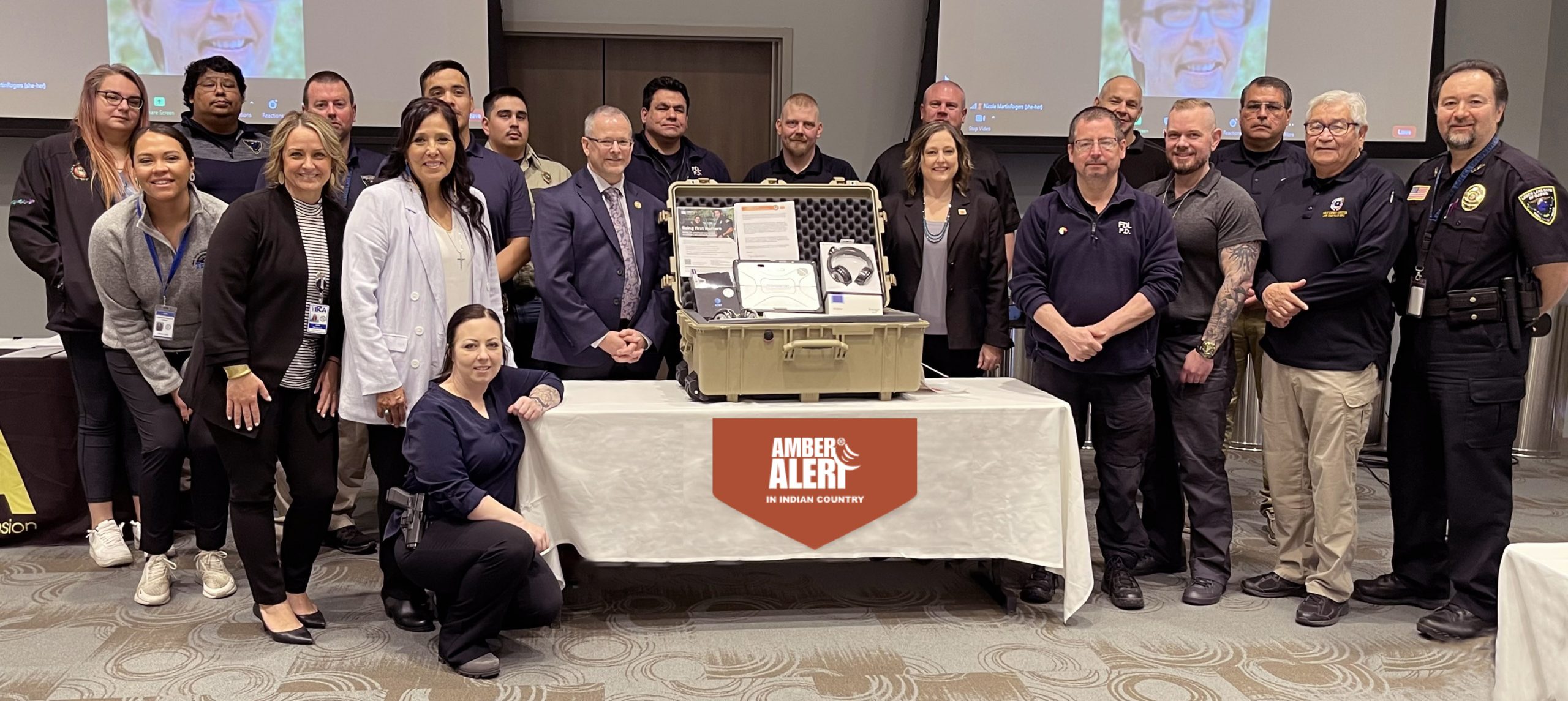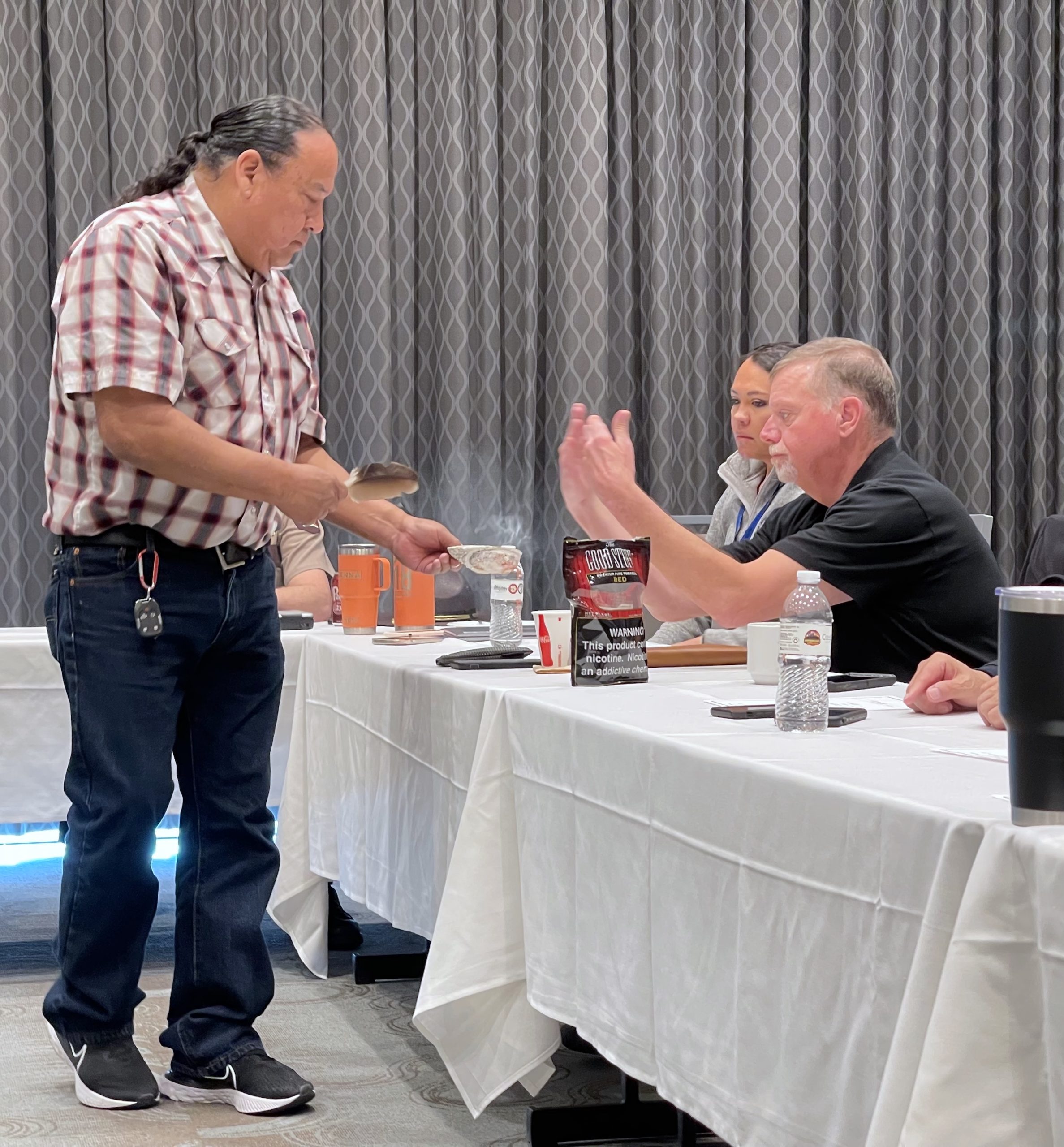
By Denise Gee Peacock
The AMBER Alert in Indian Country (AIIC) team recently provided Technology Toolkits to six Tribal nations in Minnesota during a quarterly meeting with leaders from state Tribal law enforcement as well as the Minnesota Bureau of Criminal Apprehension (BCA) and Minnesota Department of Public Safety (DPS).
 The Technology Toolkits—durable cases with high-tech equipment to help Tribes act quickly when a child goes missing—were provided for free to the Fond du Lac Band of Lake Superior Chippewa; Leech Lake Band of Ojibwe; Lower Sioux Indian Community; Mille Lacs Band of Ojibwe; Upper Sioux Community; and the White Earth Nation. Five other Minnesota Tribes also have received the Toolkits.
The Technology Toolkits—durable cases with high-tech equipment to help Tribes act quickly when a child goes missing—were provided for free to the Fond du Lac Band of Lake Superior Chippewa; Leech Lake Band of Ojibwe; Lower Sioux Indian Community; Mille Lacs Band of Ojibwe; Upper Sioux Community; and the White Earth Nation. Five other Minnesota Tribes also have received the Toolkits.


Toolkit distribution is administered by the AIIC—an initiative of the AMBER Alert Training and Technical Assistance Program (AATTAP)—and funded by the U.S. Department of Justice and the Ashlynne Mike AMBER Alert in Indian Country Act of 2018.
The May 4 regional meeting took place at the Cedar Lakes Casino and Hotel, which is owned by the Leech Lake Band of Ojibwe.
Since the meeting was held just prior to the National Day of Awareness for Missing and Murdered Indigenous Women and Girls on May 5, special attention was paid to to the profoundly important issue during the half-day discussion.
“This is also an important week for another reason: May 2 marked the seventh anniversary of Ashlynne Mike’s murder on the Navajo Nation,” said AATTAP Administrator Janell Rasmussen.
“At the time of her abduction there wasn’t really an AMBER Alert plan in place, so her mother, Pamela Foster, fought very hard to see the AMBER Alert in Indian Country Act become law. Tribes now have access to the AMBER Alert system through training, technology, and collaboration with state AMBER Alert Coordinators—all of which is central to the work we do.”

“Our children are our most precious commodity,” Minnesota BCA Superintendent Drew Evans told the group. “Our entire existence is literally to serve the people in this room.”
The meeting underscored these best practices:
- The need for families or caregivers to quickly report a child missing, instead of trying to first find the youth on their own.
- The importance of immediately entering a case involving a missing child into the National Crime Information Center (NCIC) database and to “never, ever take them out of the system until they are located,” said Minnesota DPS Tribal Liaison Jenna Lehti. “NCIC entries also help us keep up with much-needed data on Tribal missing.”
- The importance of having current photo(s) for a missing poster or alert.
- The careful wording of missing posters related to any health issue a child may have. “Instead of saying a child ‘suffers from’ a medical condition, for privacy reasons we recommend saying, ‘There is great concern for his safety,’ ” Lehti said.
- Ongoing efforts to strengthen community trust in Tribal, state, and national law enforcement through greater cultural outreach and understanding.
“We’re always available to help Tribes with any guidance or resources,” said AATTAP/AIIC Project Coordinator Valerie Bribiescas, a former detective and member of the Navajo Nation.
